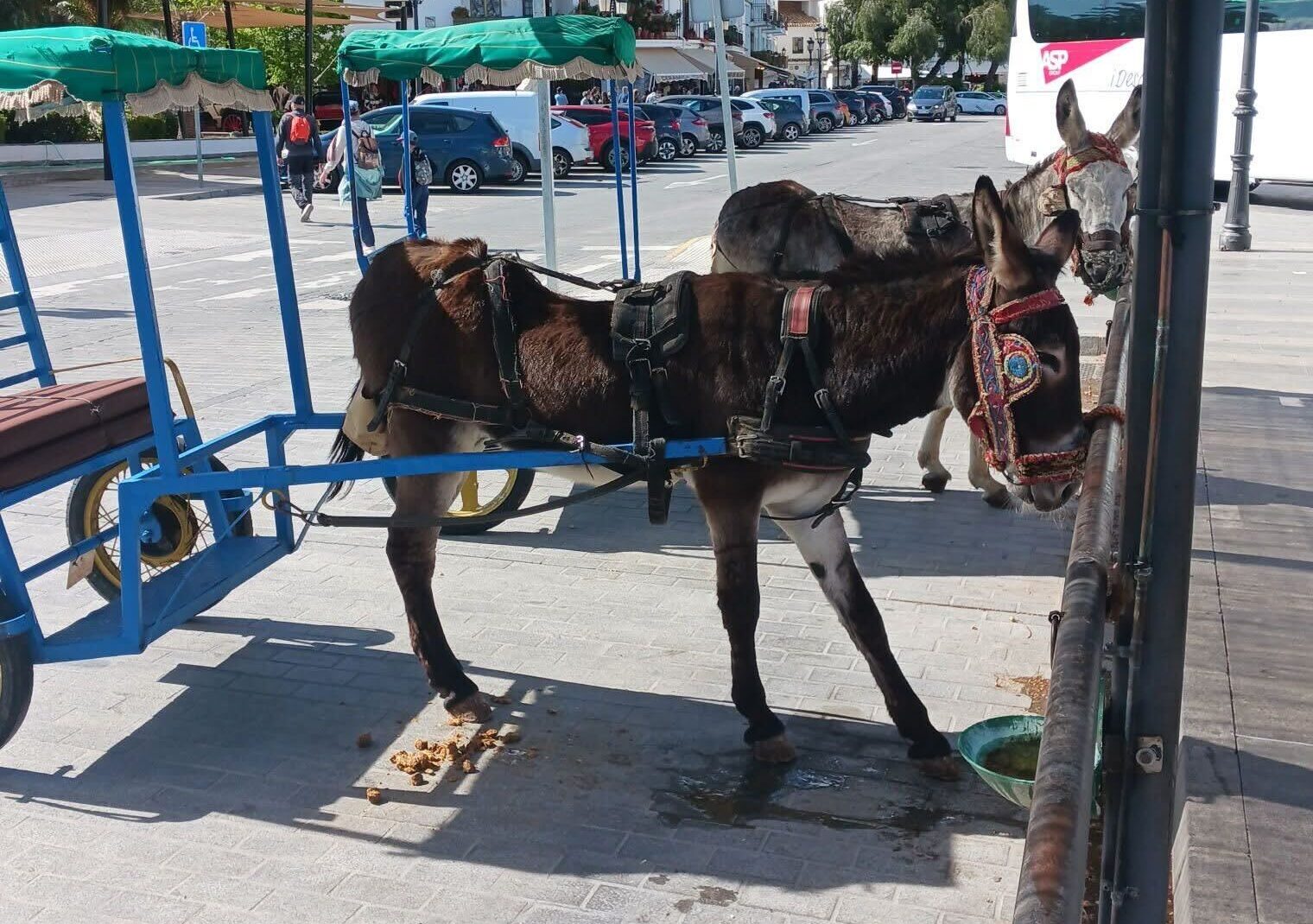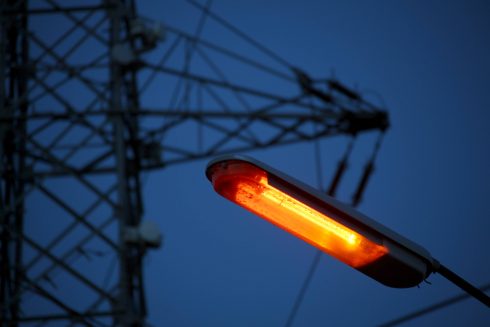A PROTEST against the use of donkey taxis in Mijas has been organised after outrage over sightings of ‘emaciated and ill’ donkeys.
Expat Michael Wisniewski says his partner was in tears after seeing the state the donkeys were in during a visit to the pueblo this month.
“Some donkeys looked okay, but some looked emaciated and ill, and they were strapped to a metal-framed carriage,” he said.
The ex-soldier went on to say he ‘had seen some things’ in his time, and the donkey’s situation seemed ‘very cruel.’ “It felt truly heart-wrenching and sad to see this happening,” he added.

He believes the donkeys need to be inspected and asked why the local authorities seemed to be ignoring the alleged animal abuse.
“Maybe in Spain, cruelty to animals is justified for their tourism,” he says. “The tourists should open their eyes to this and stop being part of such a cruel, money-making, uncaring venture. Any real human being would put a stop to this.”
The Mijas donkey taxis have met criticism since 2018, when animal rights activists called for heavy riders to be banned. The campaign went on for two years, when in 2020, riders weighing more than 80 kgs were banned.
The Mijas town hall said that, since the current government team took office, important measures have been taken to ensure the donkeys’ welfare, including the creation of an Animal Welfare Department and hiring of a municipal vet.
Just last year, new rules were introduced to protect the animals from extreme heat.
When the official weather agency Aemet issues an orange or red level warning, no taxi or horse-drawn services can be run.
If there is a yellow warning in place, services will not be operational between 2pm and 6pm, the hottest time of day.
When Wisniewski visited Mijas, he noticed ‘jail cells with bars and only a small standing space on concrete floors’ where he assumed the owners kept the donkeys overnight. “No grass-filled fields for those poor souls,” he says.
However, a town hall spokesperson said plans are in place to create a ‘recreational park’ for the donkeys, with more spacious stables and a museum sharing the story of the donkey taxis’ with visitors. Shaded resting areas with more drinking fountains have already been created for the donkeys.
“The department is working to implement new measures and decisions that will prioritise the interests of the animals and the municipality above all else,” they said.
All taxi drivers must already have a licence for their donkey, with the number of licences granted being reduced by 10% for the next four years.
“The department is monitoring the number of daily walks these animals take, and there are annual veterinary checks the animals must undergo,” the spokesperson said, as a ‘balance between tradition and animal protection.’
AIM Sanctuary treasurer Tracy Duggan says she will be attending the upcoming protest as she believes the Ayuntamiento de Mijas may ‘talk the talk’ but they don’t ‘walk the walk.’
“Instead of being proactive, they’re very reactive,” she said. “They’re reacting to the protests, thinking it’ll be bad for tourism and the town, so they’re putting those ideas in place.”
She says at last year´s protests against the donkey taxis, the owners were aggressive towards the protestors.
“Whilst I can understand that they feel threatened as it’s their livelihood, if they had actually taken better care of their donkeys, things would’t have reached the same extent of protest,” Duggan said.
“But they seem to have absolutely no regard for the donkeys at all.”
Duggan would like to see the donkey taxis phased out completely. A petition is being passed around, with organisers hoping if enough tourists sign, the Mijas town will see there’s no longer any reason to run the taxis.
“The town hall could set up a donkey sanctuary and have tourists visit the donkeys there, with money made from merchandise rather than taking advantage of the donkeys,” she said.
This month’s demonstration, organised by local animal shelter AIM Sanctuary, begins at 11am at Mirador Hermanos Nunez Andreu Mijas pueblo on May 25.
“Next time you’re in Mijas, go into one of the churches and pray to the Virgin Mary that the Spanish authorities will put a stop to this barbaric treatment of these lovable, defenceless animals,” Wisniewski added.
READ MORE:







